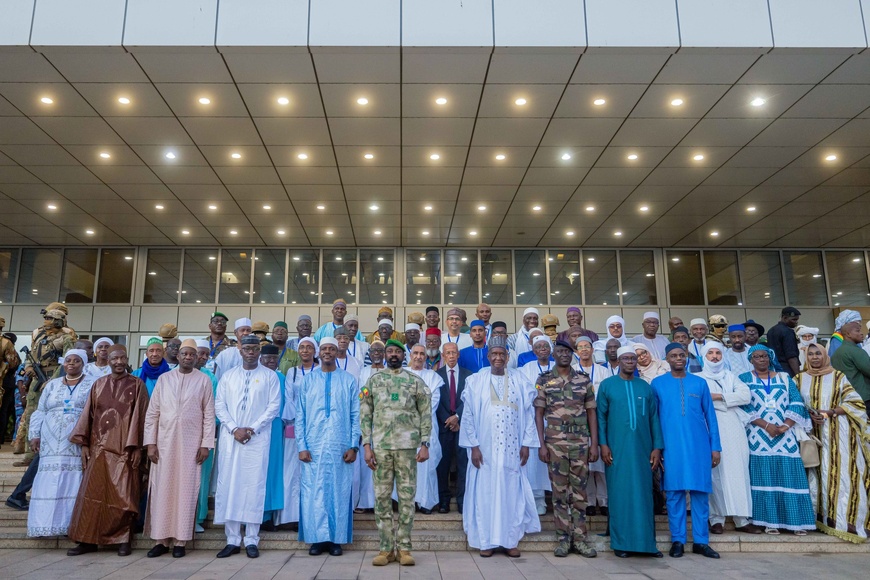Mali unveils landmark national charter to promote unity and reconciliation

In a pivotal step toward national healing and institutional reform, Mali has officially adopted a National Charter for Peace and Reconciliation aimed at consolidating unity and social cohesion across the country.
On Tuesday, July 22, 2025, President of the Transition and Head of State, General Assimi Goïta, received the Charter in a formal ceremony held at the International Conference Centre of Bamako (CICB). The event drew high-profile figures from across Malian society, including heads of national institutions, government officials, regional governors, diaspora representatives, and accredited diplomats.
The comprehensive document was handed over by Ousmane Issoufi Maïga, President of the Drafting Commission. The Charter, which encompasses 16 titles and 106 articles, addresses vital pillars of Mali’s development—economic, social, cultural, and institutional.
Initiated by President Goïta in his national address of December 2023, the drafting process was marked by widespread consultation and inclusivity. In his speech during the ceremony, President Goïta commended the participatory nature of the process and emphasized the Charter’s importance as a product of a sovereign and inclusive national dialogue, free from foreign interference.
“The Charter is the fruit of a dialogue that reflects our sovereign will, free from any external interference. It is intended to heal the deep wounds left by years of multifaceted crises and to lay the foundations for a peaceful, united, and forward-looking Mali,” said the president.
He acknowledged the geopolitical challenges Mali has faced, including foreign meddling that he said undermined state structures and intensified social unrest. However, he praised the resilience of the Malian people, the dedication of the nation’s security forces, and the collective wisdom that has steered the country towards a fragile yet promising peace.
The Charter is the result of contributions from a commission representing the diverse sociopolitical spectrum of the nation.
It tackles crucial issues such as governance, justice, youth empowerment, anti-corruption measures, and social harmony. President Goïta described it not as a symbolic gesture but as a “roadmap for rebuilding a strong, united, and stable Mali.”
Before concluding, the president extended heartfelt thanks to the members of the drafting commission and made a solemn appeal to all citizens to embrace the Charter, implement its principles, and make it a lasting foundation for national peace.
Following the ceremony, the Charter will be reviewed and adopted by the National Transitional Council (CNT) before its official promulgation by the president.
About The Author
dailymailafric
I am an avid African news observer, and an active member of Daily Mail Africa.
I’m Passionate about staying informed on diverse topics across the continent,
I actively contribute to publishing on political, economic and cultural developments in Africa.



